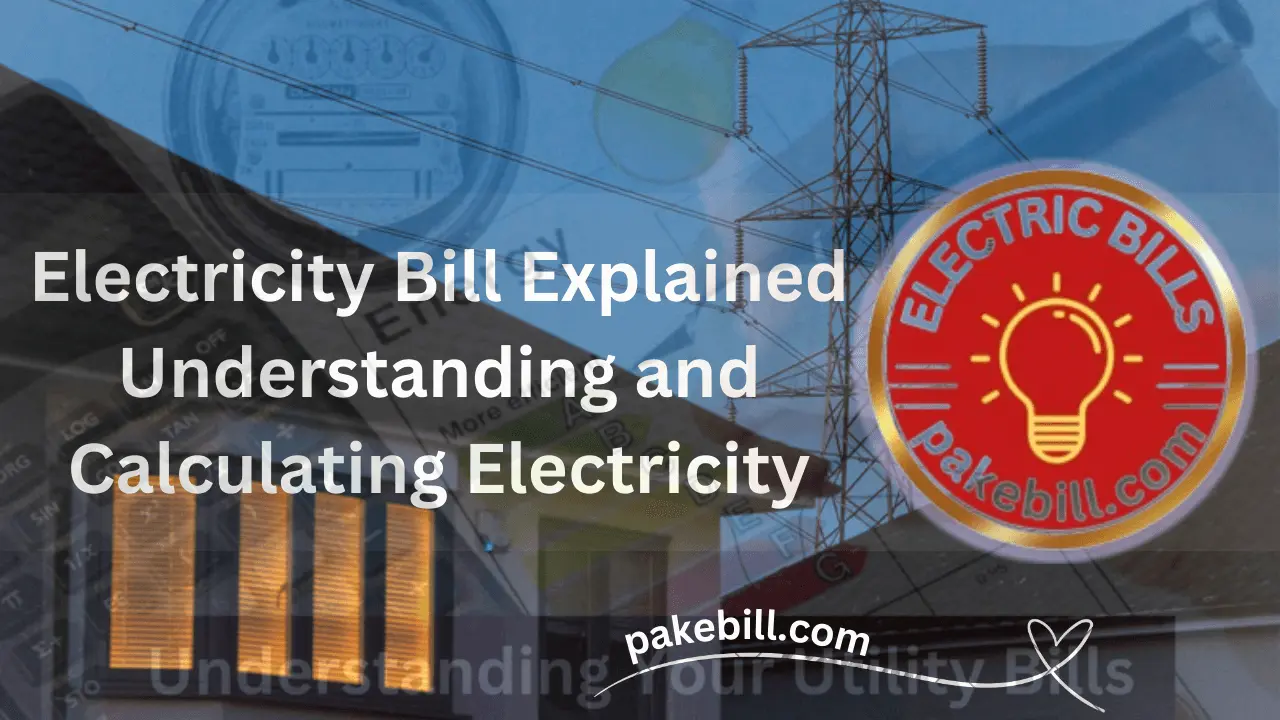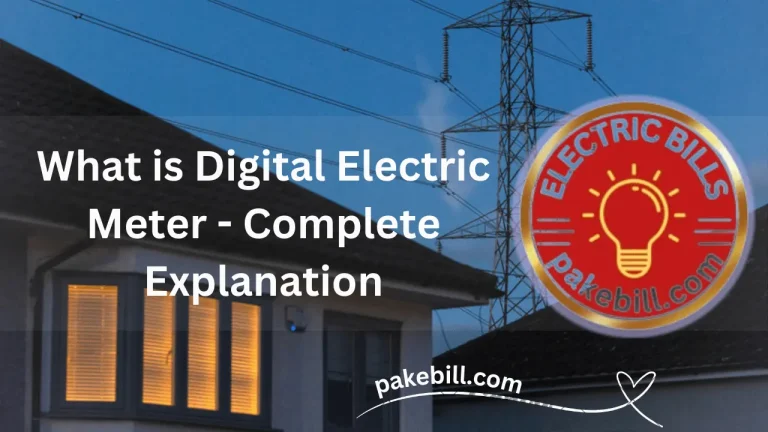Electricity Bill Explained – Understanding and Calculating Electricity
We will provide you with all the information on your electricity bill, explaining various types of taxes, the amount of electricity you use, and the corresponding taxes you need to pay. We will discuss electricity bill explained in details with you, including how your electricity consumption is calculated and how your bill is determined.
In Pakistan, there are several companies that supply electricity.
- MEPCO
- IESCO
- LESCO
- GEPCO
- HESCO
- SEPCO
- TESCO
- PESCO
- QESCO
- FESCO
- K Electric
In addition to this, you can also check the bills of all these companies online. Suppose you want to check your bill online, then you can go to Google and search for their electricity bill company, like ‘iesco bill online,’ or directly search ‘pakhebill.com.’ You can check the bill of any company by searching and get much information about electricity.
Each company has electricity consumption rate list based on the consumer’s unit usage which is called Tariff. For example, if your electricity consumption is less than 100 units, you will be charged 7.7 paisa. If your consumption exceeds 100 units, the rate will increase, following the company’s predetermined system for calculating electricity bills.
| Total Units | 110 |
| Units and Tariff | |
| 100 x 7.74 | = 774.00 |
| 10 x 10.06 | = 77.40 |
In addition to the actual usage charges, you may notice various taxes on your bill, which are imposed by the government and the electricity company.
- Government Charges
- Company Charges
Sometimes, these taxes can exceed the total bill amount. However, it’s important to note that the companies are not entirely at fault; the management’s policies and burdens on consumers contribute to this issue.
Taxes in Electricity Bills
- FPA (Fuel Price Adjustment):
- This tax is related to the fuel price adjustment and is added to your electricity bill. FPA pertains to the fuel pricing of rental power companies that generate electricity from crude oil, etc.
- FC Surcharge (Financing Cost):
- This is a regular monthly tax, charged at 43 paise per unit, to secure the collection of debt servicing for the Power Holding private company.
- E.D (Electricity Duty):
- This is a government tax based on the amount of electricity used, and consumers need to pay 1.5% of their total consumption. It is mentioned above the power supply details on the bill.
- TV Fee:
- This fee is added to the bill, whether or not you use television services.
- GST (General Sales Tax):
- Consumers pay 17% of their electricity bill every month, and the TV fee is also included in this calculation.
- TR Surcharge (Tariff Rationalization Surcharge):
- This type of tax is added to the bill, and it stands for Tariff Rationalization Surcharge. The Distribution Company pays GOP as an ‘Inter DISCO Tariff Rationalization Surcharge.’
- QTR Tariff Adj / DMC:
- This is a quarterly tariff adjustment amount added to the bills every three months.
It’s essential to understand these components to have a clear picture of your electricity expenses and the associated taxes.
Conclusion
Your electricity bill in Pakistan comprises both the cost of the electricity you use and various taxes. The government charges include Electricity Duty, TV Fee, GST, TR Surcharge, and QTR Tariff Adj/DMC. Additionally, the company charges consist of FPA and FC Surcharge.
Understanding these components is crucial for managing your expenses effectively. Remember, while these charges may seem overwhelming, they are a result of government policies, not the fault of the electricity companies. Knowing the breakdown empowers you to make informed decisions about your energy consumption.






